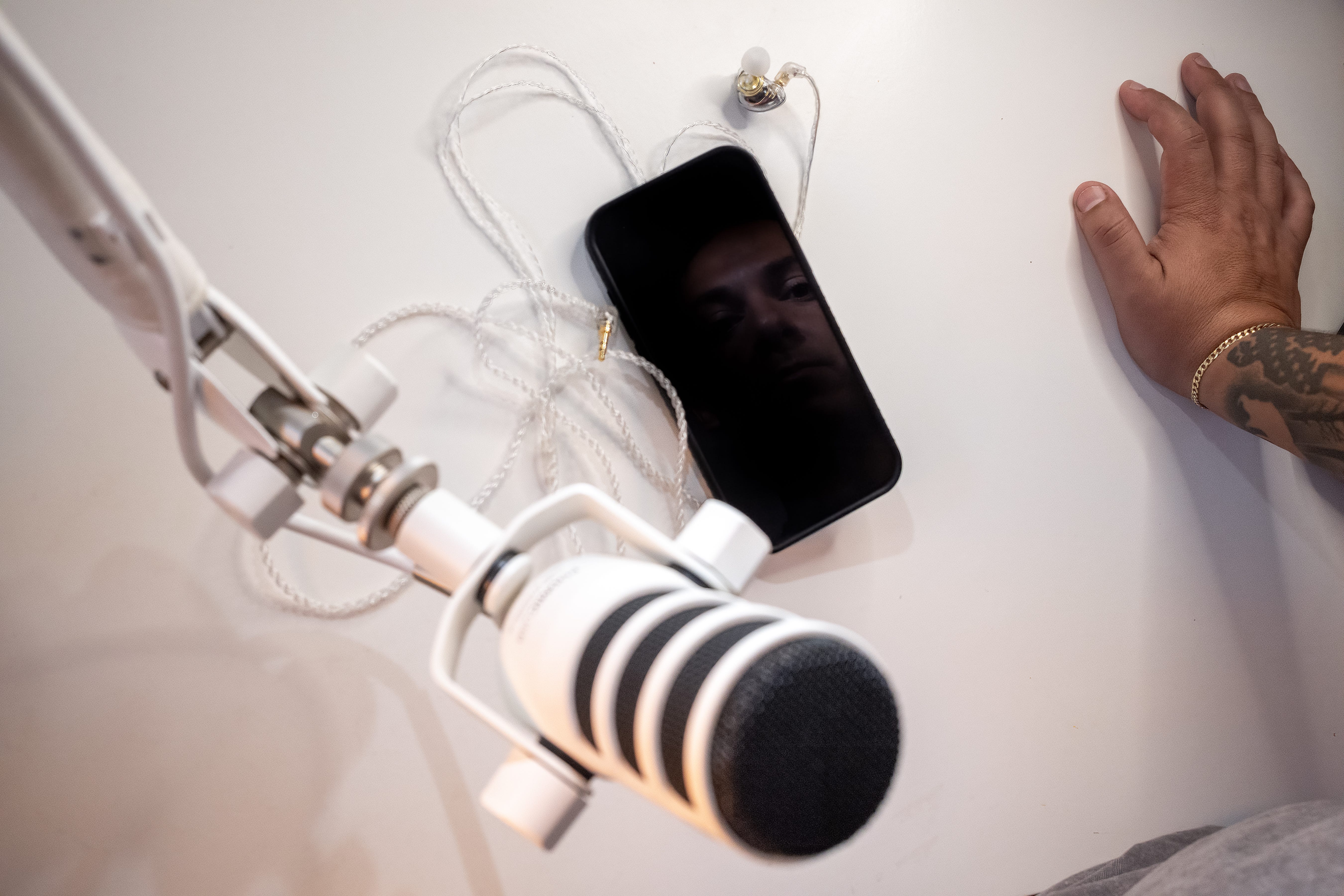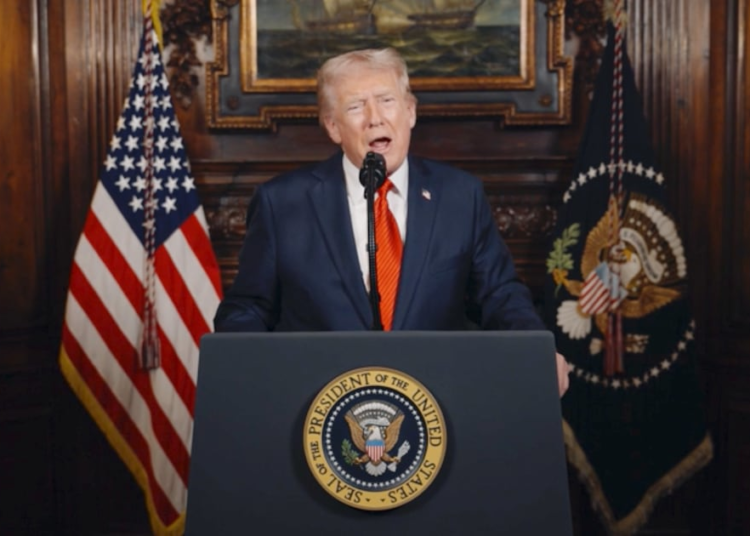
Bill McCullough for BI
- Military influencers are testing the limits of Pentagon rules on social media.
- Influencers say Pentagon policies on social media monetization are vague and unevenly enforced.
- This is the third installment of a three-part series on the rise of military influencers.
Top military influencers are taking over corners of social media — and it’s opening a can of ethical worms for the Pentagon.
Some, like Marine 1st Lt. Kagan Dunlap, have appeared at major events alongside political heavyweights like Defense Secretary Pete Hegseth and Vice President JD Vance. Others have joined the Army’s now-paused “Creative Reserve” pilot program, which tapped soldier-influencers for help recruiting and marketing.
All military influencers, regardless of follower count or content style, operate in a murky space between personal branding and military ethics guidelines. Some share lighthearted or mundane glimpses of daily military life; others push boundaries with sexualized or irreverent posts. Across the ranks, Pentagon policies on social media are vague and unevenly enforced, leaving troops eager to grow their followings but wary of the consequences, according to interviews with six military influencers and five public affairs officers.
“Right now, everything is vague,” said Johnny Vargas, one of the “Creative Reserve” Army influencers. He said more definitive social media guidance could help boost recruiting efforts online. “From a marketing perspective, that’s a no-brainer.”
The lack of clarity has spawned a confusing ecosystem that the Army’s own influencer program hasn’t yet regulated. Top Pentagon officials are giving some directives ad hoc: A new warning last week from the Navy Secretary said sailors and Marines’ social posts would be reviewed for political content. The note didn’t explicitly state what was off-limits or how enforcement would work.
Inside the military, social media is like the Wild West.
The military’s influencer class is forcing a reckoning inside the ranks
Attitudes toward military influencers are sharply divided within the ranks.
Some troops are troubled by the idea that service members can accumulate wealth and clout for successful post-military careers while still in uniform. Others don’t mind monetization, but cringe at what they see as embarrassing content that reflects poorly on the force. Public affairs officers are frustrated by the lack of control, unpredictable optics, and the possibility of an “approved” influencer going rogue.
This is the third installment of a three-part series on the rise of military influencers. If you are serving or have served and want to share your experience with social media and the military, contact this reporter at [email protected] or on Signal at kelseybaker75.75. Read more:
- This soldier built a side hustle on TikTok and Instagram and says it’s now paying better than the Army
- The Army is turning to TikTok-famous soldiers to pump up recruiting — but it hit a snag
Military leaders, meanwhile, vacillate between appreciation and irritation, seeing influencers as recruiting tools while bristling at content spotlighting controversial policies or critical news stories.
Influencers have their own concerns: They wish the Pentagon would warm up faster to social media to help boost recruitment, and worry about the risks of posting online without clearer guardrails. Vargas and Austin von Letkemann, an influencer with more than 3.5 million followers, told Business Insider it’s not about fame: They want to show authentic military life and boost interest in service as a career.
“A lot of them could get out of the Army right now and make $70,000 a video,” Army Col. Kris Saling, who oversees the paused “Creative Reserve” program, said of military influencers. “Instead, they’re coming here and saying, ‘I’m going to help.'”
The challenge, she said, is figuring out “how to do this legally, ethically, and in a way that’s fair to the service members.”
Where personal brands and federal rules collide
Military ethics guidelines prohibit government workers from using their name, image, and likeness for personal gain, said Matthew Fitzgerald, a former Army lawyer who has written about the ethics of military influencers and branded service. Those rules apply even if a service member’s account is only loosely connected to their uniform, and are more strict than federal rules.
Unit-level commanders are responsible for enforcing service-specific guidelines on social media, which include ensuring that personal opinions don’t mix with social media accounts tied to official positions and that troops don’t violate security protocols or engage in online harassment.
Troops can receive authorization from commanders to work outside jobs, like being an influencer. But it’s hard for commanders to know when troops are profiting off their service because monetization often isn’t obvious. Military guidelines prohibit advertisements, but don’t address newer ways influencers can make money — that includes speaking fees, referral codes, Venmo links, or payments from brands.
A Navy officer and pageant queen offers brand consulting; a Marine recruiter sells motivational speeches. Most avoid obvious advertisement posts and discreetly place referral links on their pages.
When asked about whether the DoD has a common ethical framework governing service members’ social media accounts and money, a Pentagon spokesperson simply referred Business Insider to existing guidelines.
For some troops and leaders, certain content — edgy posts, blatantly sexual content, or straightforward discussions of unflattering military news — raises more concerns than monetization. Vargas and von Letkemann said that some senior leaders have challenged their independence, seeking to stifle certain content or amplify select military messaging.
When asked about Vargas and von Letkemann’s allegations, an Army public affairs official declined to comment, citing the ongoing government shutdown.
“Social media is evolving and adapting so rapidly, and that’s how people get information immediately,” Vargas said. “I just feel like it’s going to keep flourishing until it gets completely shut down.”
Military influencers have waded into politics and provoked controversy
The tension between authenticity and access has become real, as troops with large followings find themselves at the intersection of military messaging, politics, and public opinion.
That became clear this past summer, when influencers von Letkemann, Vargas, and Dunlap filmed a video with Secretary of Veterans Affairs Doug Collins. Followers criticized it as a PR opportunity for the secretary amid controversy over a plan to cut 80,000 VA positions.
“I did not expect the ‘hate’ because I was trying to spread messaging about what the VA is doing for veterans,” Vargas said, referring to Collins’ efforts. Von Letkemann shared that he understood the criticism. “Everyone’s heart was in the right place,” he said. “It’s a gray, ambiguous space that’s hard to navigate.”
Dunlap declined to comment and referred Business Insider to the Marine Corps. The Marine Corps did not provide comment.
Reviews of all troops’ social media accounts intensified after the September 10 killing of conservative activist Charlie Kirk. In the days that followed, many troops’ posts drew swift and intense scrutiny from the Pentagon.
In a message last week, Navy Secretary John Phelan warned sailors and Marines that their activity online would be reviewed for potential political content. Troops may reference their rank or wear uniforms on personal accounts as long as the posts are not made in an official capacity, the message said. It also encouraged troops to “refrain” from discussions or mention of government and military policies.
Navy officials declined to answer Business Insider’s question on whether more guidance would be issued regarding ethical concerns, citing the ongoing government shutdown.
Experts warn the overlap between influencers and political figures could erode the military’s apolitical ethos — especially as social media stars gain special access to policymakers.
“I think we should all be concerned” that the government could decide to exert control over influencers’ messaging, Center for a New American Security senior fellow Jason Dempsey said. The government could say, “‘We don’t want authentic voices,'” he said.
Influencers are benefitting financially from their Pentagon ties
If troops post content that boosts the military’s image, they risk being accused of propaganda. If they speak too freely or provocatively, they risk drawing the ire of commanders or fellow troops.
There’s also concern that the Pentagon is helping boost certain influencers’ income. The “Creative Reserve” influencers, in particular, gained exposure through their ties to the Pentagon program, Saling said.
That exposure cuts both ways — the Army has benefited from their posts, which officials estimated to reach 40 million views during the Army’s 250th birthday celebration, she added.
A comparison to college athletes is instructive. Since 2021, the NCAA has allowed players to earn money from their name, image, and likeness (NIL), reflecting a wider cultural shift in how Americans define work, personal value, and self-promotion.
That’s something the military may have to reckon with. “I’d say the culture in the DoD is that if you have put anywhere in there that you are in the Army, then that’s ours,” Saling said of social media content and NIL rules.
For now, social media offers some service members a path to extra income — even as it puts them at risk of violating rules that may be out of sync with modern realities. The zeitgeist of Americans’ desire for autonomy, even in an institution as hierarchical as the military, means that, at least in the Army, talent management must now consider the soldier as an individual, said Saling.
“And there’s a lot of policy updates, there’s a lot of culture updates that have to happen because of that,” she said.
Read the original article on Business Insider
The post Military influencers are going viral, and the Pentagon’s social media rules aren’t keeping up appeared first on Business Insider.




